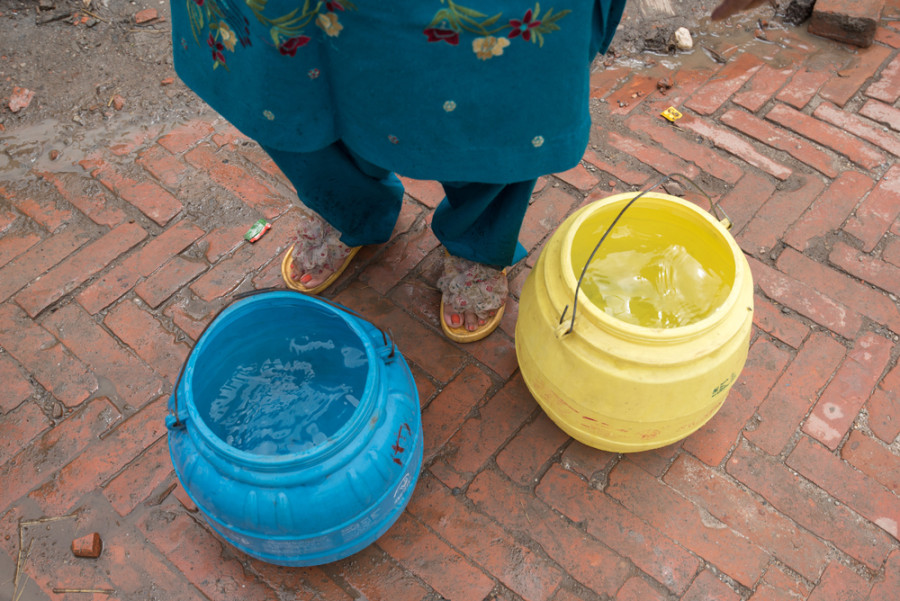Editorial
Tackling dengue
Open containers and stagnant water bodies provide breeding grounds for mosquitoes.
With the onset of the monsoon, Nepal seems to suffer from various water-borne and vector-borne diseases. While at the beginning of the rainy season, doctors confirmed the presence of Vibrio cholera O1 Ogawa serotype, lately, there has been an increase in the number of dengue cases in the country, with Lalitpur Metropolitan City recording the highest caseload with 1,056 infections as of Monday. The first cases were reported in Kathmandu two months ago. Still, no plan of action or commitment by Kathmandu Metropolitan City’s health officials has yet been initiated to control the spread of dengue.
Maintaining general hygiene standards would be critical in containing the spread of water-borne and vector-borne diseases. The dengue "search and destroy" drive initiated by Lalitpur Metropolitan City has been met with scorn by locals who have refused to adhere to the advice of the officials. The officials have stated that in most cases, people have denied them entry into their homes to search for breeding sites, and in other cases, refused to discard water stored in open containers, which provide a fertile breeding ground for dengue mosquitoes.
A crisis-like situation can only be brought under control through concerted efforts of officials and the public. People should understand that the officials and volunteers are undertaking the measures in their interest, and refusing to assist or comply with their guidance will only worsen the situation. But not all of the blame can be laid on the people for refusing to empty their assorted pots and containers used to store water. Water is a precious commodity for valley dwellers. Despite spending billions of rupees and having endured a decades-long wait for the completion of the Melamchi Water Project, there is no end in sight to the water woes troubling the people.
Infrequent water distribution means people have to store water whenever it trickles from the taps at any time of the day or night, thus providing dengue mosquitoes with fertile breeding space. Covered containers do not pose much of a problem. Still, for many people living in rented accommodation, relying on the property’s main storage tanks can be avoided by using every means to store water, usually in open containers, which provide shelter to the dengue-carrying mosquitoes.
The focus has been on Covid-19 for the last two years, but various other deadly diseases like dengue, cholera and kala-azar are circulating in the country. While the Epidemiology and Disease Control Division deals with tackling various tropical, vector-borne and other infectious diseases, it is not an enforcement agency; thus its powers are limited to requesting local units to undertake control measures. The existing mechanism of the government seems unable to deal with the problems plaguing the country in succession. The government should, therefore, look towards establishing a central enforcement agency that would play a key role in directing local units to take measures in controlling outbreaks and advising the government on health issues.




 9.89°C Kathmandu
9.89°C Kathmandu














